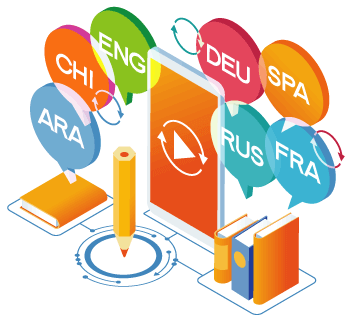BASICS OF BECOMING AN INTERPRETER OR TRANSLATOR
In our ever more interconnected global society, encountering language barriers has become an inevitable part of daily life. Whether it’s conducting international business meetings with clients from diverse countries and cultures or providing subtitles for Hollywood blockbusters, the demand for multilingual interpreters and translators spans across all industries.
Interpreters are tasked with the crucial role of bridging spoken or sign language divides between parties, whereas translators predominantly operate within the realm of the written word—translating a wide spectrum of materials, from advertisements and books to magazines, into different languages. Proficiency in two or more languages is a fundamental requirement for these professionals, encompassing fluency in speaking, writing, and reading in both languages. Furthermore, it’s essential to master each language in both its formal and informal usage.
Here is what you should consider when choosing an online interpreter and translator program:
- Above all else, it is vital that an interpreter or translator be fluent in English and at least one other language. For this reason, many employers look for candidates that have received a bachelor’s degree in a relevant area or have completed appropriate job-specific training programs, according to the U.S. Bureau of Labor Statistics[i].
- While an employer may value a candidate with years of experience speaking a different language, industry experience can also provide value. Many areas of law and business contain specific terminology, and candidates who know that terminology are often sought after.
- There are several certifications that show proficiency in different areas of translation and interpretation. In a general context, the American Translators Association provides certifications between 26 languages and English.
- The National Association of Judiciary Interpreters and Translators offers certifications that specifically involve legal and court interpretation.
- The National Association of the Deaf and the Registry of Interpreters for the Deaf specialize in sign language interpretation.
- The Certification Commission for Healthcare Interpreters and the National Board of Certification for Medical Interpreters offer certifications that specifically relate to health care terminology and interpretation.
- The U.S. Department of State offers three certifications that judge the effectiveness of interpreters pursuing positions as escorts, court work interpreters and international conference interpreters.
IS AN ONLINE INTERPRETER OR TRANSLATOR DEGREE PROGRAM FOR YOU?
Mastering multiple languages often requires compiling extensive glossaries for technical terms as well as notes about style and tone. For this reason, many prospective interpreters and translators take relevant online courses to master the language they are interested in as well as the skills necessary to interpret and translate across any communication barrier. You may prefer online courses because they often do not require commuting and classes can be taken at the convenience of the student.
1
Southern New Hampshire University
- Take advantage of some of the nation’s most affordable tuition rates, while earning a degree from a private, nonprofit, NEASC accredited university
- Qualified students with 2.5 GPA and up may receive up to $20K in grants & scholarships
- Multiple term start dates throughout the year. 24/7 online classroom access.
Popular Programs
Business Administration, Psychology, Information Technology, Human Services…
2
University of Arizona Global Campus
- 99% of University of Arizona Global Campus students study online
- University of Arizona Global Campus offers affordable tuition, so college is accessible to many students.
- he University of Arizona Global Campus (formerly Ashford University) is accredited by WASC Senior College and University Commission (WSCUC)
Available Programs
Accounting and Finance, Information Technology, Political Science…
3
Western Governors University
- Award-winning programs created to help you succeed.
- A quality education doesn’t have to be expensive. Earn an accredited degree for less.
- Programs start monthly – Apply free this week!
Sponsored Schools
WHAT DO ONLINE INTERPRETER OR TRANSLATOR COURSES LOOK LIKE?
Some common courses include:
Legal/Court Interpreter: In this course, you could learn what it takes to interpret in a legal setting. Study theory, practice, vocabulary, and more.
Sight Translation: A course like this may focus on translating written text. You could learn how to orally translate the documents needed in court.
Medical Interpreter: Learn how to interpret in a health setting. In this course, you could study medical terms, Spanish translation, and other skills.
INTERPRETER AND TRANSLATOR CAREER PATHS AND POTENTIAL SALARIES
Career paths for interpreters and translators vary greatly according to your relevant industry and language experience. While some may choose to seek teaching positions, others may work in business, law, health, travel or many other fields. Study which options may be available using statistics compiled by the BLS.




